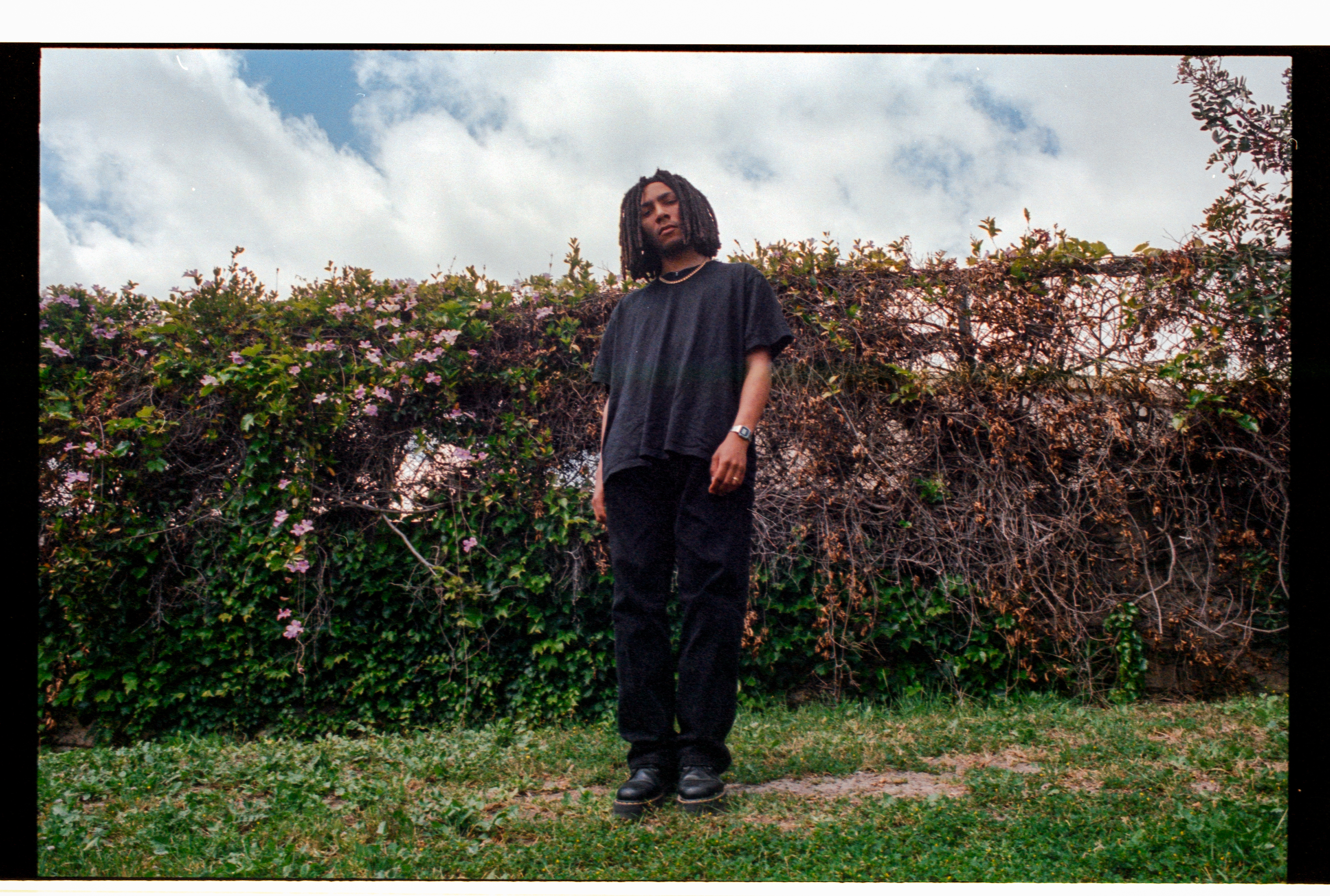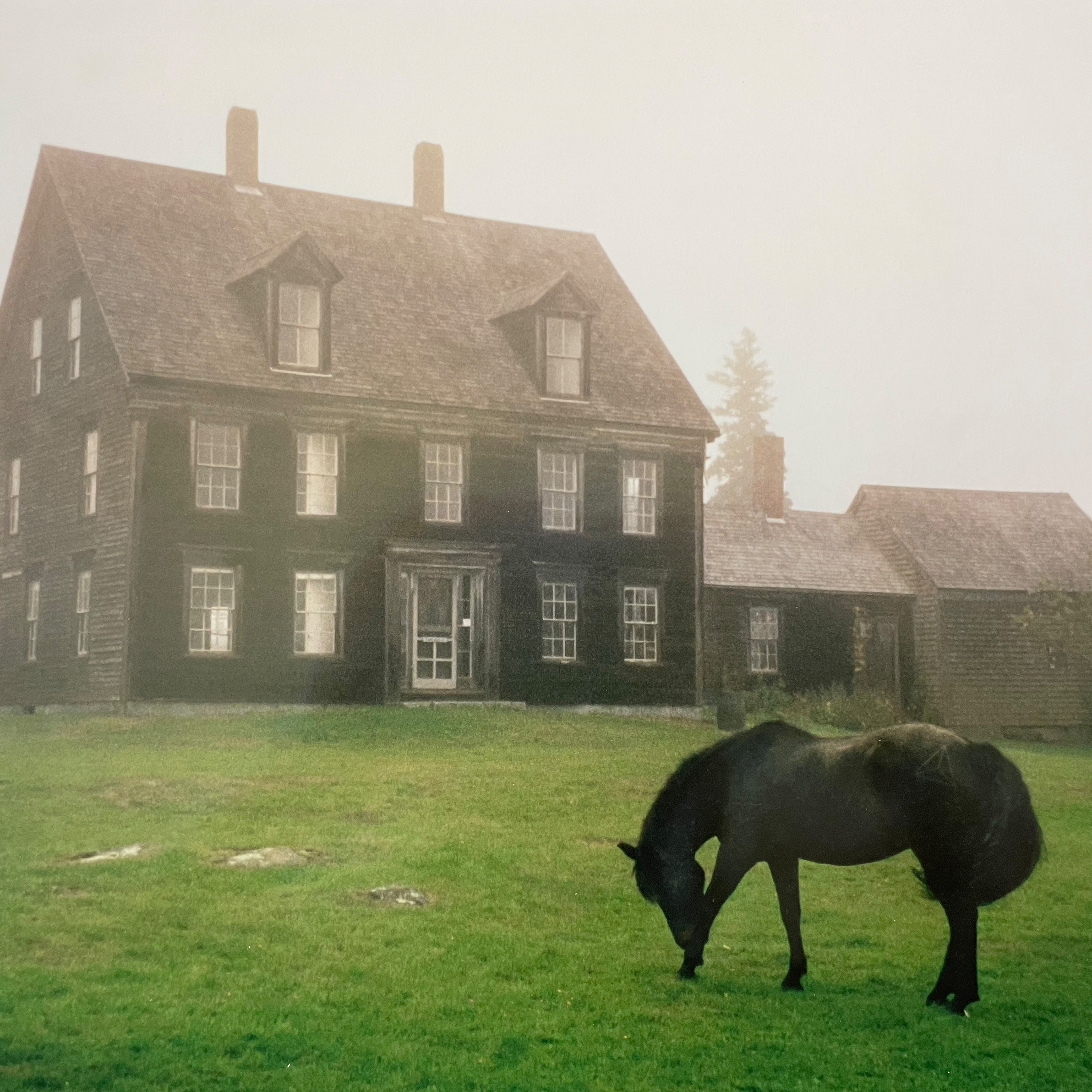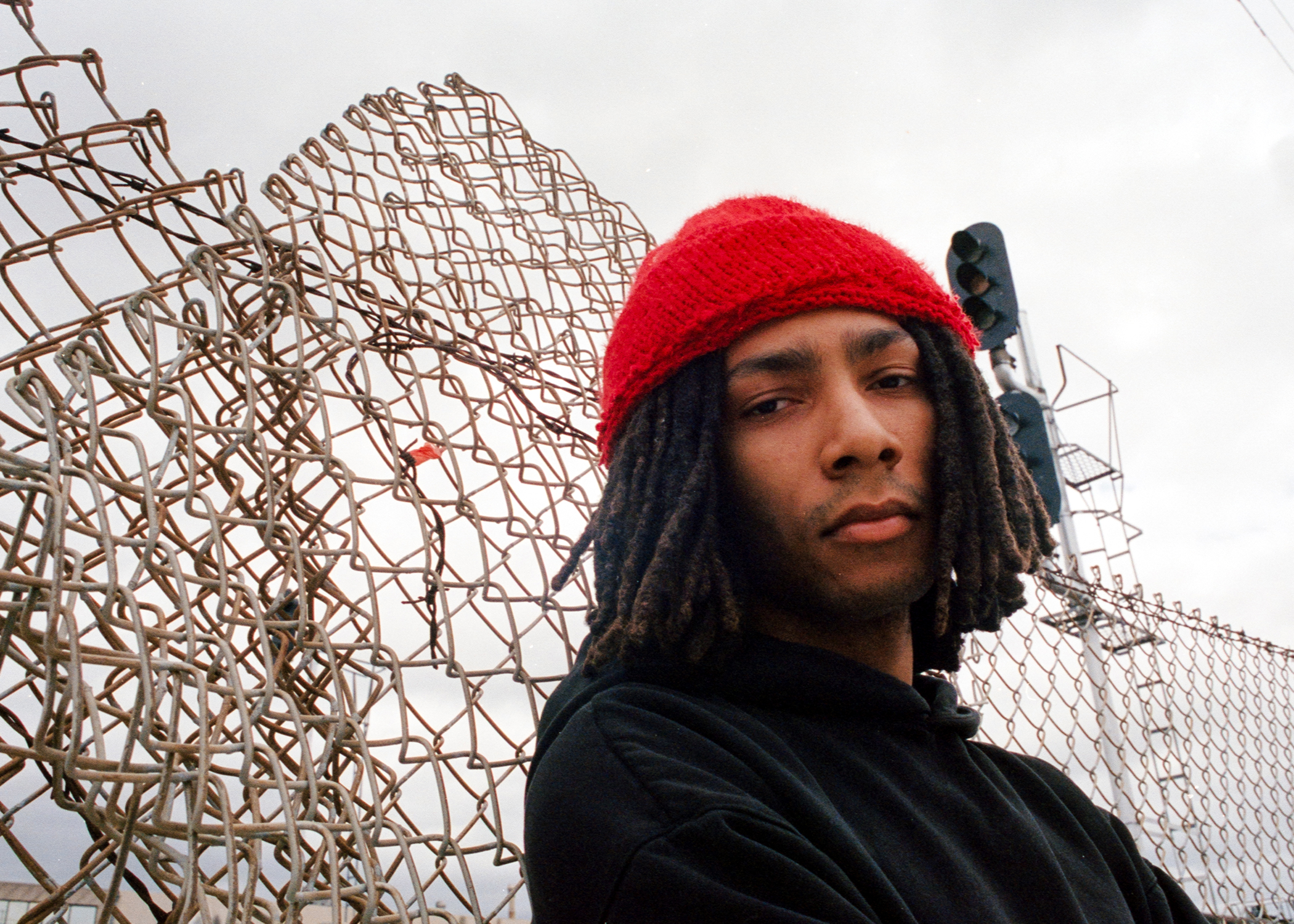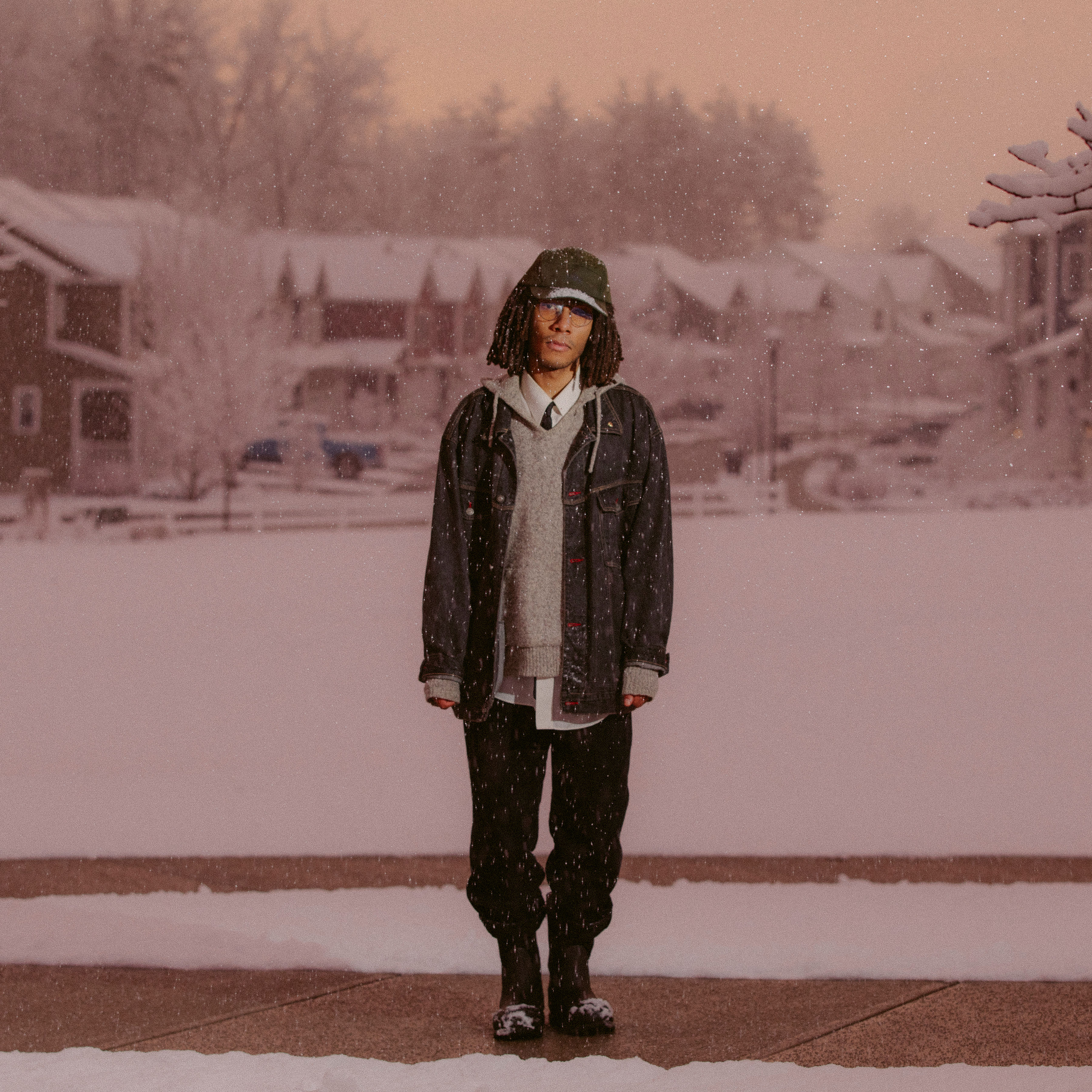
Lutalo Jones’s debut album, “The Academy,” dropped in the early days of fall this year. The seasonal timing could not have been more apt. As the leaves turned, we bid summer farewell and returned to stillness and contemplation. Mirroring this retreat, Lutalo’s introspective record takes its time before building to cathartic moments of energy. The Minnesota-raised and Vermont-based artist’s work exists at once in the worlds of folk, rock, indie, post-punk, and grunge. And, at the same time, it defies classification. The album is Lutalo’s first full-length project after the two EPs they released since the pandemic in 2020. They play every instrument on this album and sing about the remnants of the American dream,- about class, privilege, and being an impostor. They do this with the accompaniment of raw grunge tones and folktale-esque storytelling. Fader describes their lyrics as “tightly written poems” and Rolling Stones UK calls their songs “superbly constructed… and delivered with a unique and laid-back voice.” Intelligent and raw at the edges, the album introduces us to an artist who is a keen observer of the decaying modern world, and has the storytelling and songwriting chops to bring the message home. We talked to Lutalo in anticipation of his Vancouver show at the Hollywood Theatre on the weekend.
All the songs on your new album, “The Academy,” have a visceral moody quality. Especially at the start with “Summit Hill,” but the rich moodiness persists when the tempo picks up with “Ocean Swallows Him Whole” and beyond. You create an atmosphere that evokes nature. Fog, rivers, trees. It is ethereal and mysterious. How much does Vermont’s landscape influence your lyrics and songwriting? Would you say your art is very closely related to the natural world?
Everything in my perspective is connected to the natural world. I cannot create without considering the environment surrounding me. It’s a constant conversation, that is music to me.
You released your first single, “Heavy Snow” in 2020. What was it like to debut musically in such an unforeseen environment? How do you think you have changed since then when you compare your experience with “The Academy?” As well as “Once Now, Then Again”, the EP?
Honestly I think the only things that have changed are the resources and access to information. Learning more how to communicate the ideas I have is what the difference is. Time and context inform all my decisions creatively.
You recorded this album at Sonic Ranch. Could you tell us what that experience was like? Did you write some of the songs there as well? What was that genesis like? How important do you feel spaces like Sonic Ranch are for artists?
Sonic Ranch is a special place. Especially being so close to the US/Mexico boarder, a lot of thoughts run through my mind being there. Very accessible for bands and artists coming from any means. And has an extensive catalog of gear. Nearly everything I needed was present. That was something I had been looking forward to all my life, to have a place where I didn’t feel limited by gear. Limitation is great and important, but sometimes you just want a specific sound that is not accessible by the average person. I had a lot of half ideas I brought out. I prefer to finish ideas in the moment so I don’t get attached to demos or concepts.

Your song lyrics are poetic whilst being simple. What/who are your influences when it comes to your lyrics? Are they musical influences or literary ones?
One of my favorite lyricists is MFDOOM. One, because my father showed me him at a young age. And two, because of his stream of consciousness style of writing and word play. Everything he wrote felt like a narrator flowing.
A literary writer I really enjoy is John Muir. My friend let me borrow the book “The Mountains of California”, and I was amazed by his writing style. Very poetic without intention, simply from just being present within his experience in nature.
The album is centered on your formative experiences attending The Academy, a prestigious school in St. Paul. Can you talk about how that experience shaped you and how it exposed you to, and educated you in, music and musical instruments? For many artists, formal education does not foster creativity. Was this your experience? What is your relationship to education as a creative person?
For me, attending that school was more about learning how to learn. I struggled a lot in education but still loved it. All I attempt to do is approach life with an academic perspective. It keeps me grounded and interested in my experience.
You’ve mentioned in previous interviews that the album is also about your family losing their home in a recession. How do you think economic insecurity has shaped you as a musician? Has it affected your relationship with ideas of success and of being an artist in capitalism?
It was simply a fact of my life. I didn’t think much of it when I was young. I was able to escape a lot of uncomfortable moments when I went to my friends’ houses that were extremely nice. I think that’s more what I was reflecting on. How I was experiencing luxury and struggle simultaneously. It made me both see the positives and negatives. Now I know what I want. Security, community, and safety. No decisions made from fear, greed, or scarcity.
You mentioned that moving out of New York to Vermont has helped your creativity. How do you manage expectations of productivity for yourself? Especially since our world is obsessed with output and results.
I suppose I’m still figuring that out. I haven’t formed a schedule or structure around my productivity. I could be constantly making music but living life comes first. I have to experience and question things. Otherwise I don’t have much to say. I also feel, sometimes it’s okay not to have anything to say.

How has the tour felt for you so far? Do you enjoy the energy and chaos of performance? You’ve mentioned that you need isolation to recharge, and that you also moved away from New York to find stillness. How do you find existing in these two very different spaces? Do you miss the sense of community when you retreat to your sanctuary at home?
I do enjoy performing live. Connecting with the music in the moment is important. The structure and expectations of the touring industry is very disappointing to me. I’m okay with the movement but so much of our industry feels rusted and corroded. There are things that may have worked at one time that don’t serve us now. Yet out of tradition, stubbornness, and greed, things remain.
Can you talk a little about your collaborators on this album? How did you begin working with Jake Aron and what was the experience like?
Working with Jake was very informative. We had ten days at the ranch to track 14 full instrumentals at least. I was playing and writing everything on the spot or refining. So there was not much time for a break. Jake stayed organized and kept me on track with my ideas as well as helped refine structural and tempo issues. As well as helping me get the exact tone and character of all instruments. Without his help along with the help of Mario Ramirez, an engineer at Sonic Ranch. I couldn’t have gotten the record done as well or in time.
Your music has been classified as folk, indie-rock, and post-punk. I know you aren’t a big fan of genre-labeling, but I was wondering how you felt about making music in these genres of music that are dominated by white musicians? Even though the roots of all these genres are not historically white. Were you questioned much or made to feel like an outsider as a young Black musician? If so, how did you push past that and allow yourself to authentically be yourself?
I’m honestly just seeing how people just respond. I’m curious to see what the genres and culture has to say. I don’t take much to heart, but it is intriguing to me. I have no interest in filling some racial quota for genres. I’m proud to be Black and free to create what I’m interested in. Not everyone feels like they have that luxury. Historically many Black artists didn’t get much room to experiment and be successful in their work. I’d say I’m lucky in my position. I like to poke and prod at the music industry and listeners. I’m just experimenting with how it’ll respond out of curiosity.

Your music is very unique. Especially on “The Academy” you have produced a combination of lyrics and musical styles that is unlike anyone is attempting right now. I hear confidence on this record. What do you think this confidence can be attributed to? How did you find the focus and persistence to find and cultivate your unique voice (and musical style)?
I feel just being open to listening to a lot of different music and finding something beautiful or important from anything is what makes me feel confident. I feel like my skill is just finding patterns. Things that I like and figuring out why I might like them. There are attributes that stand out to me throughout genres. I focus on the feeling they evoke, not the sound or style itself.
What advice would you give young songwriters of colour who are trying to make it in the music industry?
Don’t be afraid to speak your truth. It’s all you have, and if you turn your back on that it’ll only hurt you in the long run. Be proud of where you come from, whatever that may look like, and give a perspective that no one else has. YOURS. Because we may have overlapping things and that’s important, but your story is individual as well.
Lutalo plays at the Hollywood Theatre with Nilüfer Yanya on October 18th. Get your tickets here!
– Prachi Kamble
